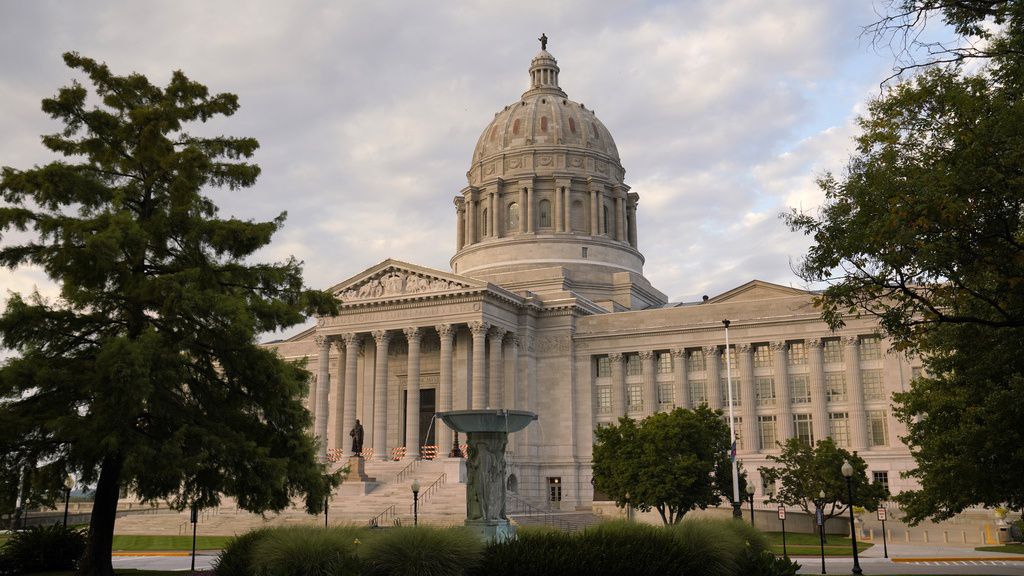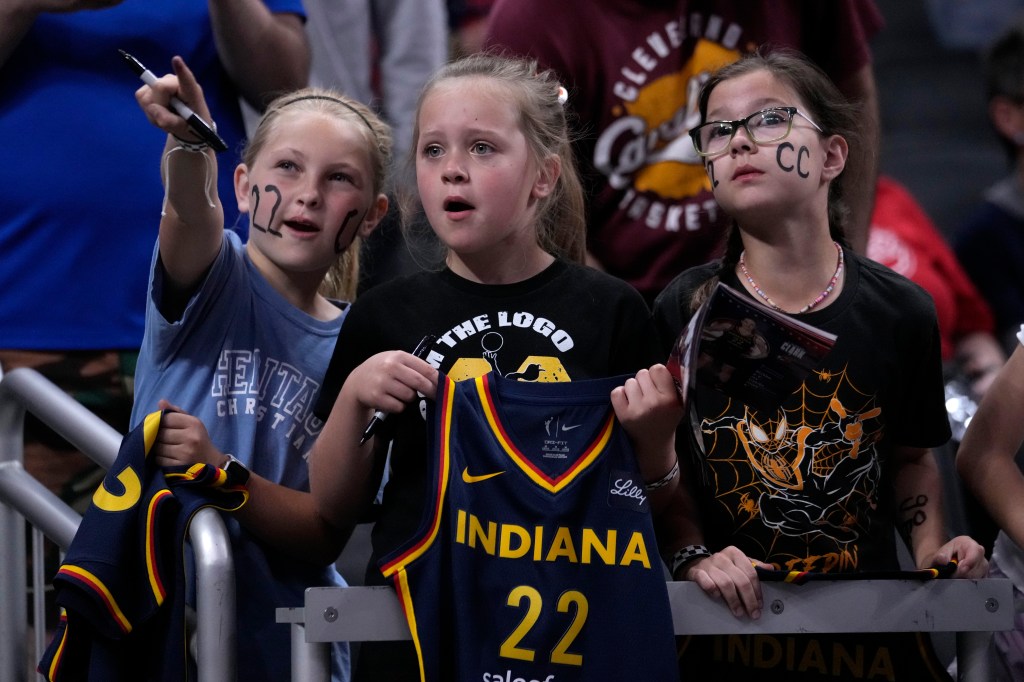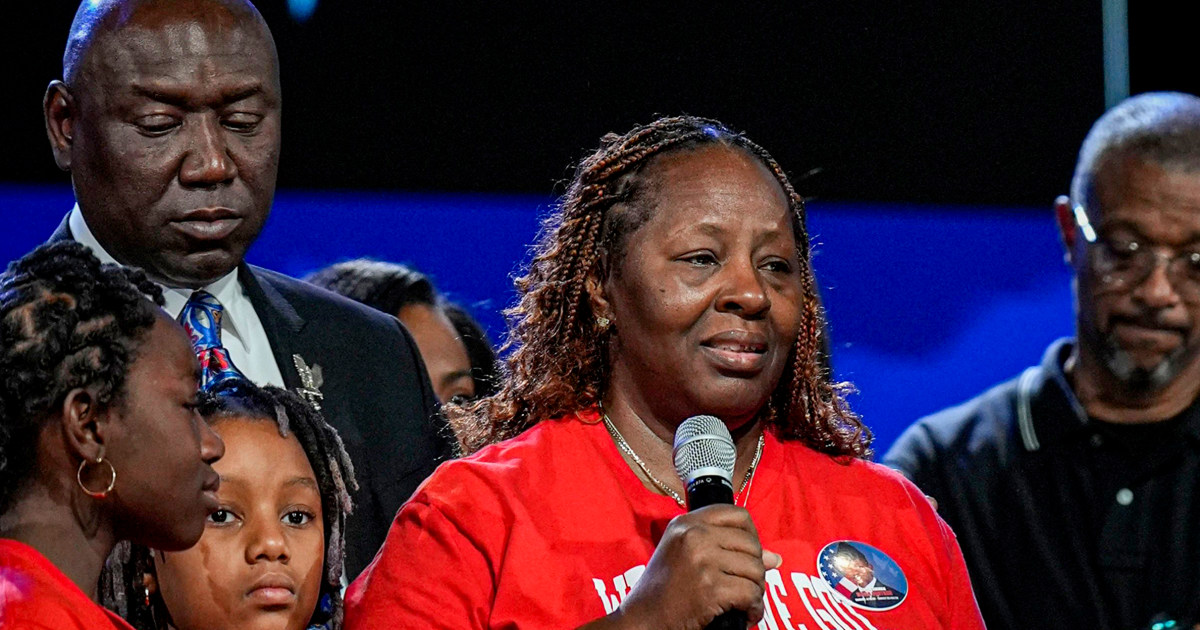Kansas
Kansas governor vetoes measures to aid anti-abortion centers, limit health officials’ power

TOPEKA, Kan. (AP) — Kansas’ Democratic governor on Friday vetoed Republican legislation that would have provided a financial boost to anti-abortion pregnancy centers and prevented officials fighting outbreaks of contagious diseases from prohibiting public gatherings or ordering infected people to isolate themselves.
The two measures were part of a wave of conservative policies passed by GOP-controlled state legislatures this year, including ones in Kansas rolling back transgender rights and establishing new restrictions on abortion providers. But Gov. Laura Kelly’s two vetoes will stand because lawmakers have adjourned for the year, barring any attempt at overriding them.
The anti-abortion measure would have granted up to $10 million a year in new state income tax credits to donors to the more than 50 centers across the state that provide free counseling, classes, supplies and other services to pregnant people and new parents to discourage abortions. Lawmakers included it in a wide-ranging tax bill that also included an expansion of existing tax credits for adoption expenses and purchases from businesses that employ disabled workers. Kelly vetoed the entire bill.
Republican lawmakers pursued anti-abortion measures this year despite a decisive statewide vote in August 2022 affirming abortion rights. Abortion opponents argued that the vote didn’t preclude “reasonable” restrictions and other measures, while Democrats argued that GOP legislators were breaking faith with voters.
Kelly supports abortion rights and narrowly won reelection last year. Last month she vetoed $2 million in the next state budget for direct aid to the centers, but the Legislature overrode that action.
In her latest veto message, Kelly didn’t point to any individual provision in the tax bill but said bundling so many proposals together made it “impossible to sort out the bad from the good.”
In vetoing direct aid to anti-abortion centers last month, Kelly called them “largely unregulated” and said, “This is not an evidence-based approach or even an effective method for preventing unplanned pregnancies.”
Abortion opponents argued that providing financial aid to their centers would help make sure that people facing unplanned pregnancies have good alternatives if they’re unsure about getting abortions.
House Speaker Dan Hawkins, a Wichita Republican, accused Kelly in a statement of a “political bias against helping vulnerable new mothers.”
Even if lawmakers still had a chance to override Kelly’s veto, they didn’t pass the tax bill initially with the two-thirds majorities required.
The other bill Kelly vetoed was part of an ongoing backlash from conservative lawmakers against how she, other state officials and local officials attempted to check the spread of COVID-19 in 2020 and 2021. They were particularly critical of orders closing schools and businesses during the pandemic’s first months and restrictions on businesses’ operations and mask mandates later.
“She said no to protecting the health freedom of Kansans and curtailing the powers of unelected bureaucrats,” Senate President Ty Masterson, another Wichita-area Republican, said in a statement.
But Republicans split over the measure because some feared it went too far in curbing state and local officials’ powers during outbreaks.
It would have stripped local officials of their authority to prohibit public gatherings and repealed a requirement that local law enforcement officers enforce orders from public health officials. Those officials also would have lost their authority to order quarantines for infected people.
The head of the state health department, appointed by the governor, would have lost the power to issue orders and impose new health rules to prevent the spread of disease or to order people to get tested or seek treatment for infectious diseases.
Kelly’s veto message said Kansas has been a pioneer in public health policy. A century ago the state’s top health official, Dr. Samuel Crumbine, was known internationally for campaigning against unsanitary, disease-spreading practices such as spitting on sidewalks and having common drinking cups on railroads and in public buildings.
“Yet lawmakers continue trying to undermine the advancements that have saved lives in every corner of our state,” Kelly wrote.
The bill also reflected vaccine opponents’ influence with conservative Republican lawmakers.
It would have prevented the head of the state health department from requiring COVID-19 vaccinations for children entering school or day care — something Kelly’s administration has said it doesn’t plan to do. State and local officials also would not have been able to cite a person’s lack of vaccination as a reason for recommending that they isolate themselves.
___
Follow John Hanna on Twitter: https://twitter.com/apjdhanna

Kansas
MMIP Series | KSHB 41 I-Team discovers scant interest among Kansas police in MMIP training

KANSAS CITY, Mo. — Over the last two years, the KSHB 41 I-Team has investigated the MMIP (Missing and Murdered Indigenous People) crisis in our community.
It’s a national movement that highlights how Indigenous people, particularly women, face much higher rates of violence, including assault, rape, murder, and trafficking.
The I-Team covered the disappearance of Quana Big Spring, a Belton teenager, and the Independence cold case murder of Lakota Renville.
Those are two examples of how the crisis is playing out in the Kansas City area.
This is a place the public may not think is part of this nationwide epidemic.
During our investigation, we also learned Kansas lawmakers passed a bill in 2021 that offers free training to law enforcement officers on how to investigate MMIP cases, as they have certain cultural and jurisdictional aspects that set them apart.
“It was Kansas’ first step for MMIP,” Kansas Representative Christina Haswood said, a Democrat from Lawrence who co-sponsored the bill and helped it pass.
The I-Team wanted to find out just how many law enforcement agencies actually took that step.
We reached out to every one of them, more than 300 police departments and sheriff’s offices across the state. We asked how many were aware of the MMIP training and had taken the class.
The class is voluntary, not mandatory.
37 agencies responded. 27 of those were aware of the training and nine agencies had already taken it, which is 3%.
Our findings shocked and disappointed Haswood, who is one of the only Native American lawmakers in the state.
“And you said you reached out to everyone?” Haswood said when we handed her our findings. The data was compiled onto a spreadsheet.
“That really gets me fired up because we can see with your findings that there’s such a big gap of communication and education, that there’s definitely work that needs to be done,” she said.
Fighting for this training is personal to her. Many of her constituents in Lawrence are Native and represent tribal nations across the country.
“It really angers me that we come together, and we say, ‘Here are the resources that you ask [for] and can hopefully get you elevated on your knowledge,’” Haswood said. “But when it’s given voluntarily, the resources are not being used.”
Haswood says there’s a perception at the statehouse that Native Americans don’t exist. She says she has spent a lot of time explaining to other lawmakers that Native Americans don’t just live on reservations and that Native issues are still relevant today.
Another perception the I-Team noticed was multiple law enforcement agencies saying the MMIP training isn’t a high priority because they’re not close to a reservation or they don’t know of any MMIP cases.
“This is an issue that even though you might not see every day with your own eyes, it is happening, and if we continue to operate like this, when it does happen, that we don’t have a system that’s robust enough to help Indigenous peoples,” Haswood said.
Kansas is home to four tribal nations: Prairie Band Potawatomi Nation, Kickapoo Tribe in Kansas, Iowa Tribe of Kansas and Nebraska, and Sac and Fox Nation of Missouri in Kansas and Nebraska.
Although MMIP cases don’t happen as frequently in Kansas as in other part of the U.S., the issue still hits close to home for many families.
We met some of those families last spring when we visited the Prairie Band Potawatomi Nation for a MMIW walk and ceremony.
“The MMIW movement is new, but the issues are not,” one speaker said.
Much of the movement focuses on Indigenous women, which is what the “W” stands for, though it was expanded to include all Indigenous people.
We talked to sisters Jessi and Rachelle Blacksmith, who run the MMIP chapter of northeast Kansas. They’re advocating for their brother, Willie Blacksmith, who was murdered in July 2022.
“We’re trying to make something good out of what happened to our brother to help others,” Rachelle said.
They learned about the state’s MMIP training and took it themselves. They say it would be beneficial to all police agencies.
“What are you supposed to do if a murder happens? This tells you what to do, this goes through the steps [of] what to do,” Jessi said.
Haswood says its about livelihoods and knowing that government systems have their back.
She hopes she can add more teeth to the training by making sure all agencies are aware of the training and set aside an hour to take it, and make it mandatory, instead of voluntary.
“I’ll continue to fight for this issue,” Haswood said.
Only one law enforcement agency, the Galena police department, out of the 325 in the state, said they’d make the training mandatory.
Several agencies said they’d take it or would consider taking it after we reached out.
The Gardner police department took the training the day we called.
During our investigation, we contacted Salina police about the training and a 2019 MMIP case in their jurisdiction. We later received a call from one of the department’s detectives, who told us he spent four hours investigating that 2019 case after we reached out. He discovered the missing man was an unclaimed body in Columbia, Missouri.
Although it’s a sad ending, the man’s daughter, who had spent years contacting morgues across the country, told us she was grateful to have closure and finally know what happened to her dad.
We shared that story with Haswood, who said the training is “literally helping people.”
Anyone can take the online training by going to the Kansas Law Enforcement Training Center page.
Kansas
Kamal Hadden Signs Rookie Contract With Kansas City Chiefs

Former Tennessee Volunteers corner Kamal Hadden signed his rookie contract with the Kansas City Chiefs.
Former Tennessee corner Kamal Hadden underwent a rookie minicamp with the Kansas City Chiefs after being selected by them last month. He officially signed his rookie contract with the organization; the four-year deal is valued at $4,158,396, with $138,396 in signing bonuses.
The Kansas City Chiefs recognized his growth during his tenure at the University of Tennessee and selected him with the No. 211 pick in the 2024 NFL Draft. Hadden became Tennessee’s third draft pick of the day and their third overall during this year’s draft process. He also became the third defensive back selected from Tennessee under head coach Josh Heupel.
“Tennessee prepared me greatly for the league, sticking with me and helping me grow as a man and helping me grow as a player. They helped me tremendously… just giving me the opportunity to showcase who I am as a player but also as a man.” – Kamal Hadden to reporters at the 2024 NFL Combine
You Might Also Like:
Join the Community:
You can follow us for future coverage by clicking “Follow” on the top right-hand corner of the page. Also, be sure to like us on Facebook @VolunteerCountry & follow us on Twitter at @VCountryFN.
Kansas
Kansas City, Kansas hospital to halt labor, delivery services

KANSAS CITY, Kan. (KCTV) – Major changes for Kansas City, Kansas residents amid Providence Medical Center announcement.
The KCK hospital announced it will no longer offer a vital service.
Labor and delivery will be no more starting June 30, 2024.
Providence said it is exploring partnerships with other hospitals in the area in hopes patients can continue services as needed.
The hospital released the following statement:
Providence Medical Center Board of Directors, we are deeply saddened to announce that due to the steady decline in Labor and Delivery patients over the last ten years, Providence Medical Center will no longer be able to offer Labor and Delivery services on our healthcare campus, effective June 30, 2024.
We are exploring partnerships with hospitals and clinics in the Kansas City metropolitan area to assist our community with the transition. We will continue to provide, and expand, gynecological services at 8101 Parallel Parkway, Kansas City, KS to meet patient demand.
We want to thank all our past, and present, hard-working staff and community partners that worked tirelessly to provide Labor and Delivery healthcare services in Wyandotte County and surrounding counties for over 100 years.
ALSO READ: St. Luke’s reunites trauma survivors with medical staff
Copyright 2024 KCTV. All rights reserved.
-

 Politics1 week ago
Politics1 week agoBiden takes role as bystander on border and campus protests, surrenders the bully pulpit
-

 Politics1 week ago
Politics1 week ago'You need to stop': Gov. Noem lashes out during heated interview over book anecdote about killing dog
-

 Politics1 week ago
Politics1 week agoRFK Jr said a worm ate part of his brain and died in his head
-

 News1 week ago
News1 week agoMan, 75, confesses to killing wife in hospital because he couldn’t afford her care, court documents say
-

 World1 week ago
World1 week agoPentagon chief confirms US pause on weapons shipment to Israel
-

 Politics1 week ago
Politics1 week agoHere's what GOP rebels want from Johnson amid threats to oust him from speakership
-

 World1 week ago
World1 week agoPro-Palestine protests: How some universities reached deals with students
-

 World1 week ago
World1 week agoConvicted MEP's expense claims must be published: EU court



















